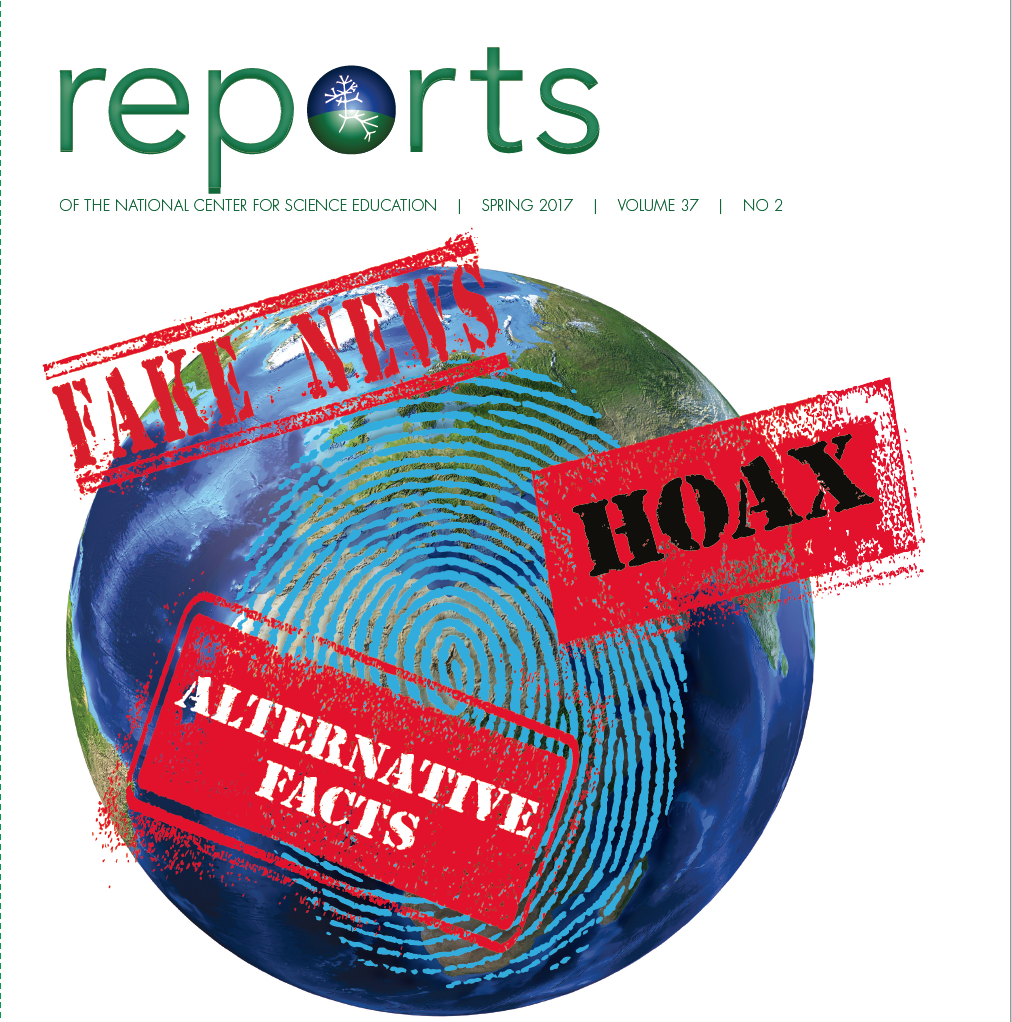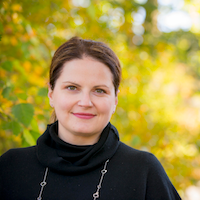 When I interviewed climate scientist Ben Santer in February 2017, so much news of the new administration’s assault on climate science had already been reported that I was feeling all kinds of break-glass desperation. By the end of our talk, I was feeling capable of uncurling from the fetal position. Perhaps you, too, will feel better for reading some more of our exchange that didn’t make it into RNCSE 37:2 (coming your way shortly if you’re a member of NCSE—and if not, here’s how you can join!). Previous excerpts can be found here.
When I interviewed climate scientist Ben Santer in February 2017, so much news of the new administration’s assault on climate science had already been reported that I was feeling all kinds of break-glass desperation. By the end of our talk, I was feeling capable of uncurling from the fetal position. Perhaps you, too, will feel better for reading some more of our exchange that didn’t make it into RNCSE 37:2 (coming your way shortly if you’re a member of NCSE—and if not, here’s how you can join!). Previous excerpts can be found here.
Stephanie Keep: The well-documented delay tactics of the so-called merchants of doubt have been incredibly successful. You wrote the “balance of evidence” statement for the IPCC report in 1995, and here we are twenty-five years later still fighting to get people to accept the evidence. But at the same time, I feel like there is a new focus on convincing us that even if climate change is real, we don’t have to change our behavior because there is nothing we can do about it.
Ben Santer: That’s not new. That’s been around for some time. Here in California, I’ve seen it since AB 32, the legislation to reduce greenhouse gases from various sources in California, which is something that was initiated well over a decade ago. One of the industry responses to that was “nothing puny California can do is going to influence global climate.” Nothing California can do, nothing the United States can do, nothing you can do as an individual will have any impact; so why bother? That has always seemed to me to be a singularly silly argument.
The economic leaders of the twenty-first century will be the individuals, groups, states, and nations that figure out cheap efficient ways of providing low-carbon energy. Taking this defeatist “well, we can’t do anything here” attitude is an announcement that we don’t want to lead. Perhaps we’ll follow someone else, but we’re not going to lead. I’m sure that India and China are rubbing their hands at the ignorance that is now on display, and saying, “Wow, the United States is not going to unlock innovation and is not going to incentivize development of alternative energy—so hey! We will!”
SK: Do you think industry leaders will step in and convince the administration that pulling out of the 2015 Paris agreement on climate change, and in general not working against climate change, isn’t in the best interest of business?
BS: I hope so. Businesses want predictability, and most CEOs didn’t get to be CEOs by being stupid. And they understand that this is a serious problem—most of them do—and that eventually they’re going to have to do something about it. In many cases, their shareholders are already holding them accountable. But the question is whether the ideologues—people who really don’t care about the science, or facts, or even about what business wants and what business needs—will be the only figures on the playing field, as it were. We need people in positions of power, like Jim Mattis at the Department of Defense, who understand that climate change will be the backdrop against which all important geopolitical events of the twenty-first century will play out.
SK: You’re making such a strong argument for getting a seat at the table even if you have some, shall we say, issues with the host.
BS: I am seeking responsible dialogue, and I think that business leaders that care about this issue should seek responsible dialogue again and again and again. Some things are worth fighting for. And a clear public understanding of what’s at stake here, of the science and of the likely outcomes, is truly worth fighting for.
If I had five minutes with President Trump, I’d use that time to tell him, “Listen, you don’t want to go down in history as the guy who fiddled while the planet burned.” Look at Nero: he went down in history as the guy who fiddled as Rome burned—I don’t think you want that.
SK: As of now, we do not know whether the Trump administration will act to pull us out of the Paris agreement. What do you think will happen?
BS: Well, on the one hand, some degree of progress will be made, I think, irrespective of what this government decides. There are a lot of smart people, particularly in Silicon Valley, who recognize that there are economic benefits in being developers of cheap, efficient, low-carbon energy. So on that front, bringing down the price curve for renewables, things will probably continue to move in the right direction. But there is a lot the administration can do to keep progress to a minimum and to turn back the clock forty or fifty years.
As for Paris, there is a waiting period before a country can withdraw now that it has been ratified. But there is speculation that they could try to cancel the UN Framework, or US involvement on the UN convention on climate change, which was ratified by the first President Bush. So we will see what is in store. Even Rex Tillerson has said, as has Nikki Haley, that the US should remain in Paris, but whether they or other forces have sway in the administration, we will see—I guess—pretty soon.
SK: I’m starting to feel pangs of pessimism and defeatism again. Excuse me while I curl up into a ball on the floor…
 BS: Look, this is a big storm, and to quote Harry Potter’s Albus Dumbledore: “There will be a time when we must choose between what is easy and what is right.” It’s easy to do nothing, to say nothing. But that’s not the right thing to do. The right thing to do is to speak out against misogyny, to speak out against racism, to speak out against ignorance, to speak out against abuses of power—even though this is arguably the most powerful democracy in the world, democracy must always be defended. That’s the lesson of the last few months.
BS: Look, this is a big storm, and to quote Harry Potter’s Albus Dumbledore: “There will be a time when we must choose between what is easy and what is right.” It’s easy to do nothing, to say nothing. But that’s not the right thing to do. The right thing to do is to speak out against misogyny, to speak out against racism, to speak out against ignorance, to speak out against abuses of power—even though this is arguably the most powerful democracy in the world, democracy must always be defended. That’s the lesson of the last few months.
So the challenge for us now is to publicly shame the forces of unreason and to not let people normalize ignorance and to use words like “hoax” and “conspiracy” to describe scientific understanding. More than any point in the last four or five decades, there is need for your work [at NCSE] and there is a need for our work [in science]. We must do what we can to ensure a more critical public that doesn’t just go to Fox News or Breitbart to consume information, but that wants to dig in and try to understand what’s at stake.
SK: Okay. Help me up. Let’s get to it.
Are you a teacher and want to tell us about an amazing free resource? Do you have an idea for a Misconception Monday or other type of post? Have a fossil to share? See some good or bad examples of science communication lately? Drop me an e-mail or shoot me a Tweet @keeps3.

